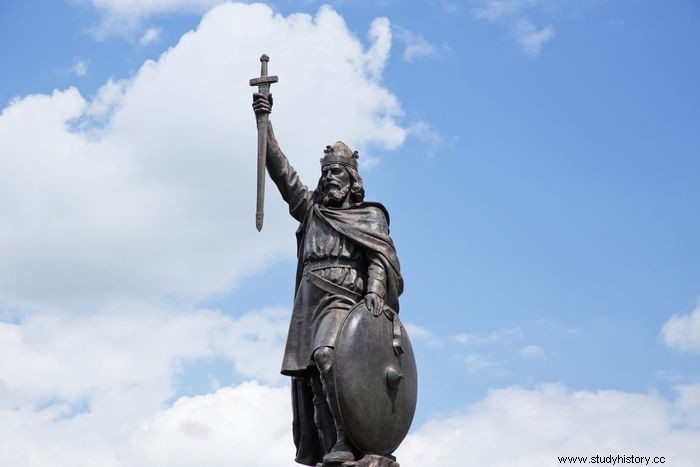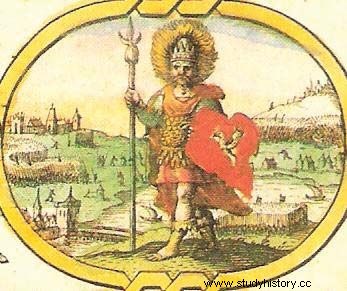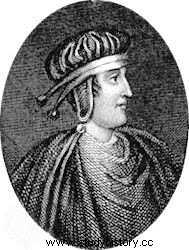Wessex , one of the kingdoms of Anglo-Saxon England whose rule The dynasty eventually became kings of the entire land. At its permanent core, its land approximated that of the modern counties of Hampshire, Dorset, Wiltshire, and Somerset. At times his lands extended north of the Thames , and it eventually extended westward to cover Devon and Cornwall. The name Wessex is an elision of the Old English form of "West Saxon".

 Read more about this topic Britain:The Decline of Mercia and the Rise of Wessex Offa died in 796 and his son died a few weeks later. Cenwulf, her successor, quelled revolts in Kent and East Anglia, but he...
Read more about this topic Britain:The Decline of Mercia and the Rise of Wessex Offa died in 796 and his son died a few weeks later. Cenwulf, her successor, quelled revolts in Kent and East Anglia, but he... Wessex grew out of two settlements:one became according to Anglo-Saxon Chronicle founded by Cerdic and his son (or grandson) Cynric , who landed in Hampshire in 494 or 495 and became kings in 500 or 519; The other, known only from archaeological evidence, was on the upper Thames and was probably settled from the northeast. Although the Chronicle implies that this area was in British hands in 571 when Cuthwulf (possibly a member of the West Saxon royal family) Luton, Aylesbury, Bensington (now Benson in Oxfordshire) and Eynsham conquered, archaeological evidence proves an earlier settlement.

Few incidents of early expansion are recorded. This includes conquering the Isle of Wight by Cerdic and Cynric in 530 and the battles of Cynric at Salisbury in 552 and Barbury Castle (Wiltshire) in 556. A victory won by a successor. Ceawlin (who reigned between 560 and 592 and is mentioned by Venerable Bede as the second English king to hold an empire in Britain ), 577 at Dyrham, Gloucestershire, resulted in the capture of Bath, Cirencester and Gloucester, and Ceawlin's battle at a place called Fethanleag, probably in North Oxfordshire, in 584 is also recorded. Ceawlin also defeated Aethelberht of Kent at a place called Wibbandun in 568. After Ceawlin had extended power from Wessex north of the Thames, was Ceawlin 592 from his nephew Ceol distributed who reigned for five years. Ceol was succeeded by his brother Ceolwulf (r. 597–611), whose reign succeeded that of Ceol's son Cynegils (reg. 611–643). During this period, Wessex was threatened first by Northumbria and then by the growing Kingdom of Midland Mercia . Cynegils and his son Cwichelm lost the provinces of Hwicce (Gloucestershire, Worcestershire and South West Warwickshire) Penda by Mercia. Cynegils was succeeded as king by his son Cenwalh (r. 643–672), who married Penda's sister but soon divorced her. For this act he was by Penda exiled (645–648) in East Anglia driven . For much of his reign he fought against the Mercians and the Welsh, and Penda's successors conquered South Hampshire and the Isle of Wight from him. These regions were held by the Mercians from 661 to 686, and according to the Historia ecclesiastica by Venerable Bede Wessex was temporarily divided among the subjects after Cenwalh's death.
During this period, however, the kings of Wessex gained victories over the British and steadily expanded westward. Ceadwalla (685–688) reconquered the Isle of Wight and South Hampshire, and before 690 there was a Saxon monastery at Exeter. Ine (r. 688–726), the first West Saxon king to issue a code of laws, settled at Sherborne (Dorset ) for the western areas. Mercian dominance over Wessex, which included direct control of parts of Berkshire and Wiltshire, ended with the accession of Egbert (reg. 802–839). He conquered all of Devon and Cornwall and defeated Beornwulf of Mercia in 825 and brought Surrey, Sussex and Kent under permanent West Saxon rule.
The ultimate supremacy of the West Saxon kings resulted from their successful resistance to the Danes, whose "great army" arrived in 865 and the other Anglo-Saxon kingdoms but held out in Wessex Aethelred I. (reg. 865–871) and Alfred (reg. 871–899). The latter recovered from London in 886 and was accepted as overlord by all English not subject to the Danes. After the reconquest of the remaining Danish territory completed by Alfred's grandson in 927 Athelstan , the kings of Wessex became kings of England.

Region plays a prominent role in the Legends by King Arthur and the Knights of round table , and the Label "Wessex" was written by the writer Thomas Hardy uses to represent the region of South West England where he set his novels.
